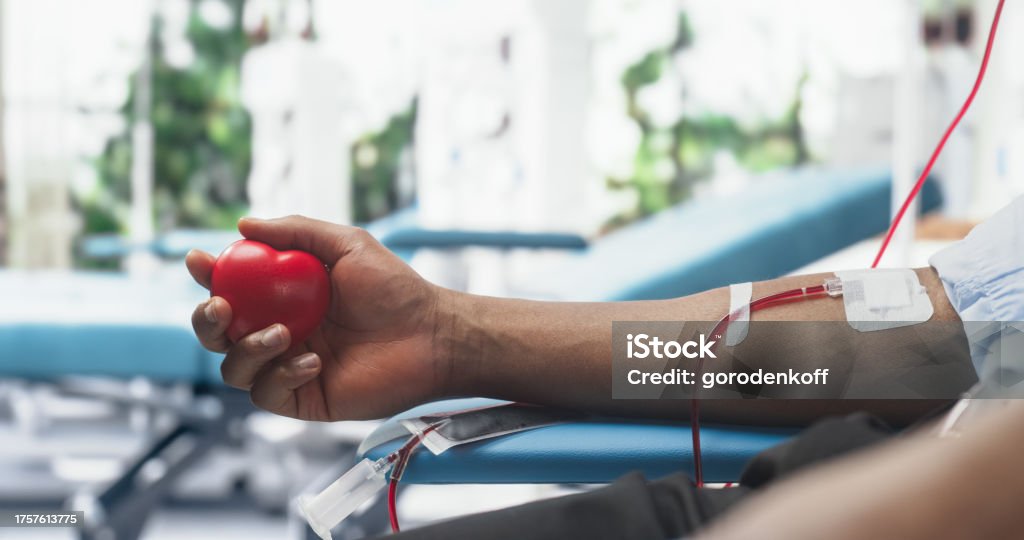Here are a few things you should know about blood donation as it pertains to Nigeria
Blood donation is a very delicate procedure that only skilled professionals are allowed to carry out on a potential donor.
Commercial blood donation is discouraged at all costs as voluntary blood donors are to be recruited more and this is primarily in the interest of these patients.
Read also; Celebrating World Blood Donor’s Day in Nigeria.
Voluntary donors are often selfless and enlightened citizens who have a sense of service and duty to their community. These individuals on their own make it a duty to voluntarily donate blood to aide patients who are in such need but do not have relatives or friends to assist them.
Voluntary donors are not motivated by anything offered to them in exchange for the blood they donate, rather they feel fulfilled to have served their community with that which they have freely received from their maker.
Read also; Who would protect the Nigerian consumer.
One of the preliminary investigations done to a potential donor is to examine their body for any form of piercings or tattoo.
While some scholars have argued that the reason for the tattoo inspection is to prevent transfusing blood or blood products with metals which may be contained in the tattoo ink.
Some other schools of thought believe that the piercings and tattoos on a patient’s body are indicators to the lifestyle of the potential donor.
This lifestyle is suspected to pose a huge risk to the recipient of the blood sample or its products.
Then these potential donors are screened for some blood borne infections which could be a great source of risk to the patients.
The minimal screening for blood donors should be an enzyme linked immunosorbent assay (ELISA) as prescribed by WHO.
Read also; A Day with the Chidokas.
While we advocate strongly for blood donation, it should be known that the maximum volume of blood that can be taken from a patient at a go should not be more that 450 mls.
A blood donor is advised to copiously consume fluids before and after blood donation, to make up for the volume of blood lost after blood donation.
It is estimated that it takes a physiologic (normal) man 24- 48 hours to replenish the fluid which must have been lost during the blood donation exercise.
Read also; Healthcare services in Southeastern Nigeria.
The red cells lost from the body during blood transfusion takes a minimum of 4 weeks to a maximum of 6 weeks regenerate and mature. This when translated to days should be between 90 – 120 days.
Men are established to be eligible for blood donation after every three months unlike the women whose own are after every four months. That eligibility stretch for the women is mainly because of their monthly menstrual cycle.
Read also; Occupational hazards that exist in conjugal services industry.
The calculation above should guide even the commercial blood donors to help them save themselves from becoming anaemic due to excessive blood donation exercises.
The least age of eighteen (18) years with a maximum age of sixty-five (65) years is what is expected of a blood donor.
Beyond the donation of the whole blood cells, there are specialized medical procedure that require some specific components of the blood. These components or blood products are red cells, platelets, fresh frozen plasma, cryoprecipitated antihaemophilic factor AHF, granulocytes
Read also; Are we about to reinvent the wheel in Abia State?
Just to give you a picture image that would amaze you, as I know that some of us might have not looked at the blood donation conversation through this lens yet.
Onyenkachi as a bald headed Isiala Ngwa South youth who started the charitable act of blood donation at 18 years, would have saved a minimum of five hundred (500) lives by offering 192 units of blood if he donates blood every 90 days for sixty (60) years of his life.
Truth is that blood donation has its great advantages which it confers on the donors. These advantages of blood donation include a reduction in blood iron level which is good for the heart, promotes the production of new red blood cells, confers an invaluable psychological advantage on the donor and can help a routine donor cope with sudden blood loss in case of an accident.
Read also; Social media monetization reality.
Finally, while we are still battling with the reality of the challenges of ensuring that the best minimal procedures like Enzyme Linked Immunosorbent Assay are employed in screening of a blood pint for the popularly known blood borne infections like HIV, HBsAg, HCV, Syphilis etc, it should be known that there is nothing as a perfectly safe blood.
This is because no facility in the world can routinely test blood samples for transfusion of all diseases in this life.
While commercial blood donation is not peculiar to Nigerian medical sector, we should seek ways to reduce the population of people going into the trade as it is not in the interest of our society.

